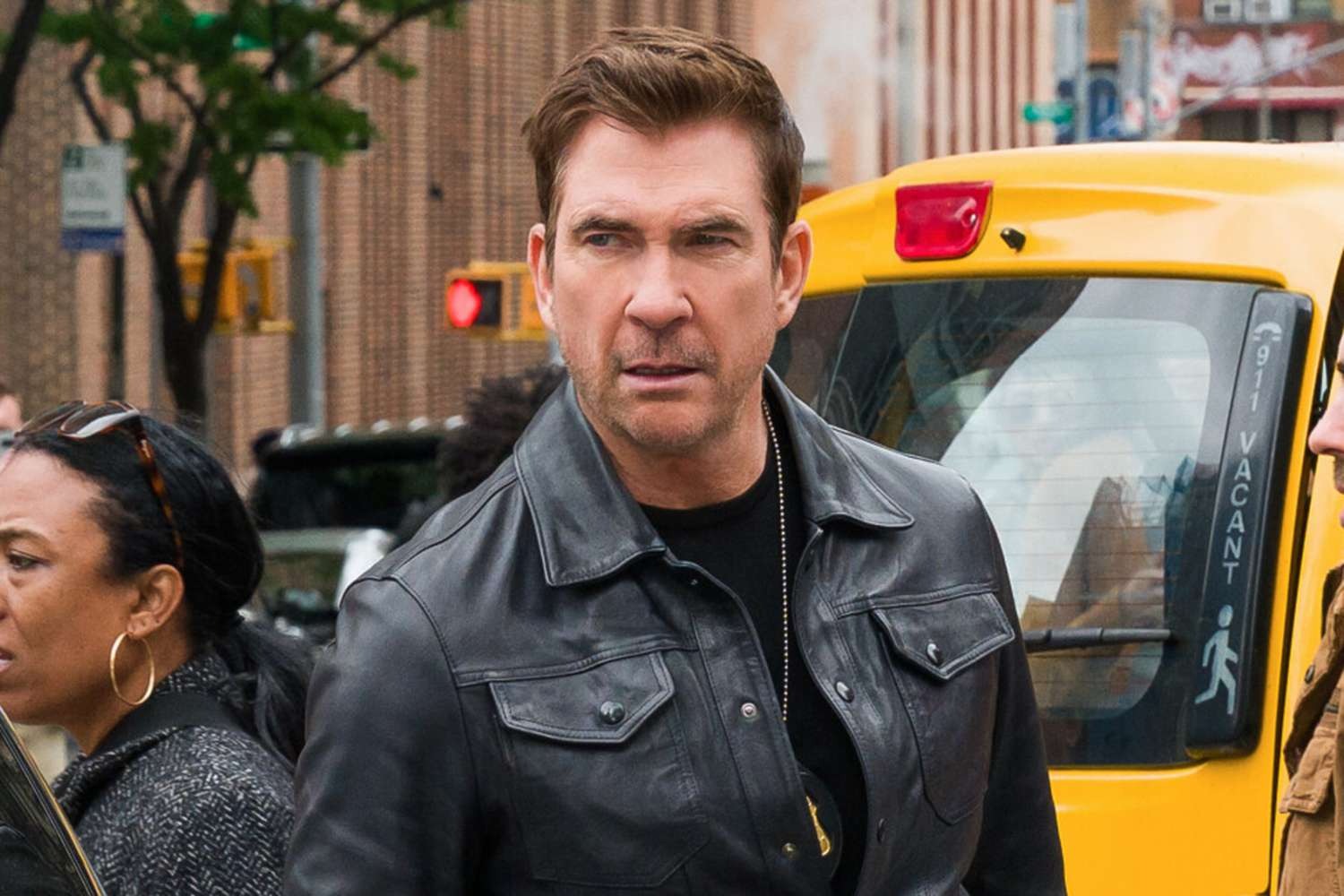
Introduction: The Shocking Exit of Two Major Shows
Fans of the FBI franchise are still reeling after CBS abruptly canceled both FBI: Most Wanted and FBI: International. These weren’t just average primetime shows—they were franchise staples with loyal viewership. So what gives? Why would a network like CBS suddenly pull the plug on two seemingly successful series?
Let’s peel back the curtain and explore the real reasons behind the cancellation—and what this move signals for the future of network television.
The Popularity of the FBI Franchise
The Trio That Took Over Tuesday Nights
The FBI franchise, created by Dick Wolf, brought in solid ratings for CBS. The three series—FBI, FBI: Most Wanted, and FBI: International—held down Tuesday night primetime like clockwork. But despite being part of this successful trio, two of the three have now been axed.
A Legacy of Strong Ratings
From procedural lovers to true crime addicts, fans of the FBI franchise loved its consistent storytelling, fast-paced plots, and ensemble casts. Viewership numbers were solid—especially when measured against other procedural dramas.
So, what went wrong?
The Official Word From CBS
CBS’s Generic Statement
CBS released a standard-issue press statement expressing gratitude to the cast and crew of FBI: Most Wanted and FBI: International, calling the shows “important contributors” to the network’s primetime lineup.
But vague thanks and corporate fluff don’t really answer the question, do they?
The Real Reasons Behind the Cancellations
1. Rising Production Costs
One of the biggest reasons networks cancel shows—even successful ones—is money. And let’s be real: these FBI shows aren’t cheap to make.
Filming international locations, stunts, special effects, and a large ensemble cast? All of that adds up quickly. And when the return on investment (ROI) starts to dip, even beloved shows become expendable.
2. Contract Expirations and Actor Salaries
A lot of the main actors’ contracts were coming up for renewal. And let’s just say—renewing those contracts wasn’t going to be cheap.
When actors hit their third or fourth season, negotiations get intense. Some want higher salaries. Others want more creative control. CBS may have crunched the numbers and decided the cost didn’t justify the continuation.
3. Declining Viewership in Key Demographics
Yes, overall ratings still looked decent, but the 18–49 demographic—the one advertisers care about most—was slipping.
A show could have 6 million viewers, but if most of them are outside that key ad-buying demo, it’s a red flag for network execs. Advertisers don’t care about quantity as much as quality.
4. Streaming vs. Traditional TV
Let’s talk about the elephant in the room: streaming.
With viewers flocking to platforms like Netflix, Paramount+, and Hulu, traditional network TV is under pressure. CBS has been pivoting toward a digital-first strategy, and some of its primetime slots are now being reserved for more cost-efficient, streaming-compatible content.
The FBI franchise, especially the international version, may not have been bringing in the streaming numbers CBS hoped for.
5. Creative Burnout and Narrative Fatigue
After multiple seasons, even the strongest procedurals can begin to feel repetitive. The writers try to spice things up, but sometimes the magic just doesn’t last.
FBI: Most Wanted and FBI: International started showing signs of formula fatigue. When viewers feel like they’ve “seen it all,” engagement drops.

A Strategic Shift at CBS
Making Room for New Blood
CBS isn’t cutting shows just to save money—they’re making space for new content.
Fresh faces, younger characters, and genre mashups are becoming more attractive to networks trying to capture the ever-elusive Gen Z audience.
Expect to see more hybrid shows: think crime dramas mixed with psychological thrillers, sci-fi, or dark comedies.
Dick Wolf’s Future With CBS
Will the Creator Move On?
Dick Wolf isn’t new to the game. The man behind Law & Order and Chicago PD knows how to adapt.
Rumor has it that Wolf is already in talks to retool the FBI universe—or possibly launch a new series under a different network or streaming service. CBS may be losing two shows, but they’re not losing the Wolf brand entirely.
Audience Reactions and Fan Backlash
Social Media Outrage
Fans weren’t quiet about the cancellations. Twitter, Reddit, and Facebook exploded with comments ranging from confusion to outright rage.
Many accused CBS of “destroying its own lineup” and “abandoning loyal fans.” Some even started petitions to save the shows.
Streaming Hope: Could Another Platform Save Them?
While CBS may be done, there’s always hope that Paramount+ or another streaming platform could step in. It’s happened before—just look at Lucifer and Brooklyn Nine-Nine.
Comparing This Move to Other Network Cancellations
Not the First Time, Won’t Be the Last
This isn’t the first time CBS has pulled the plug on popular shows. Remember CSI: Cyber or NCIS: New Orleans? The network has a history of reshuffling its deck, sometimes for better, sometimes for worse.
In a competitive TV landscape, even successful shows can get caught in the crossfire of strategic reboots and budget cuts.
Behind the Scenes: What Cast and Crew Are Saying
Actors’ Reactions
Several cast members shared bittersweet goodbye messages on social media, expressing love for their fans and gratitude for the journey.
Some insiders hinted that the decision was abrupt—even the actors didn’t see it coming until the final episodes were wrapping.
The Future of Procedural Dramas
Are We Reaching the End of the Crime Drama Era?
It might feel like it, but don’t worry—procedurals aren’t going anywhere. They’re just evolving.
Expect shorter seasons, grittier themes, and multi-platform rollouts. The genre isn’t dying—it’s just shedding its old skin.
CBS’s Ratings Strategy Going Forward
Pivoting to Reality and Live Events
CBS has also been leaning more into reality TV, sports, and live events. Why? Because those bring in real-time viewers—and that’s pure gold for ad revenue.
Scripted shows, especially serialized ones like the FBI series, are easier to binge later, which cuts into live viewership. For CBS, it’s about what works now—not just what worked five years ago.
What Should Fans Watch Next?
Similar Shows Still Airing
If you’re missing your FBI fix, don’t worry. Try:
-
NCIS (still going strong)
-
Law & Order: SVU
-
The Rookie
-
Blue Bloods
These shows still bring that procedural punch with emotional depth and criminal thrills.
Final Thoughts: It’s Not About Love—It’s About Business
TV isn’t just art—it’s business. And unfortunately, business decisions don’t always align with what fans want.
CBS didn’t cancel FBI: Most Wanted and FBI: International because they failed. They canceled them because, behind the curtain, numbers matter more than narratives.
Will they be missed? Absolutely. But in today’s rapidly shifting TV landscape, no show is ever truly safe.
Conclusion
The cancellations of FBI: Most Wanted and FBI: International shocked fans and industry insiders alike. But behind the emotion lies a familiar truth: the TV industry is evolving. Cost, demographics, contracts, and streaming numbers all played a role in CBS’s decision.
This isn’t the end of Dick Wolf or FBI-style dramas—it’s just the end of this chapter. And who knows? The next one might be even better.
FAQs
1. Will FBI: Most Wanted and FBI: International be picked up by another network?
There’s no confirmation yet, but streaming platforms like Paramount+ or Netflix are possibilities. Fan demand could push for a revival.
2. Is FBI (the original series) still on air?
Yes, as of now, FBI remains on CBS. It has not been canceled and continues to perform well in key ratings.
3. Why didn’t CBS just reduce the budget instead of canceling the shows?
Network executives often find it easier to cancel and launch new projects than to retool expensive ones, especially when viewership is declining in target demos.
4. Are there any spin-offs in the works to replace these canceled shows?
There are rumors of future Dick Wolf collaborations with CBS, but no official announcements have been made regarding spin-offs.
5. How can fans make their voices heard about the cancellations?
Fans can start or sign petitions, flood social media with hashtags, and subscribe to streaming services showing reruns to demonstrate demand. Sometimes networks do listen.
